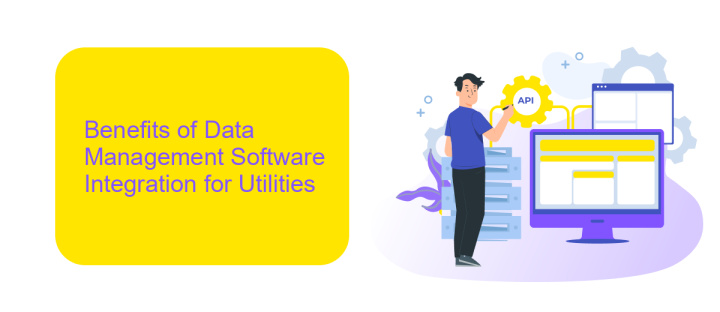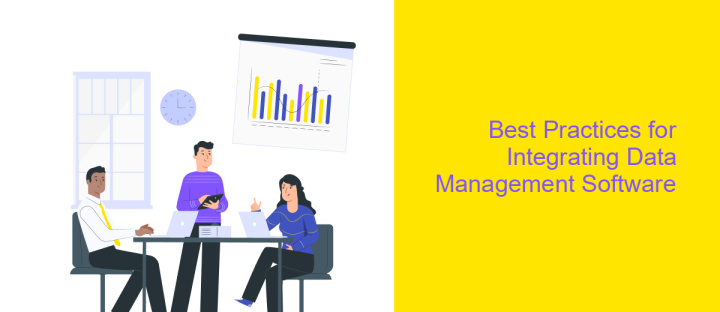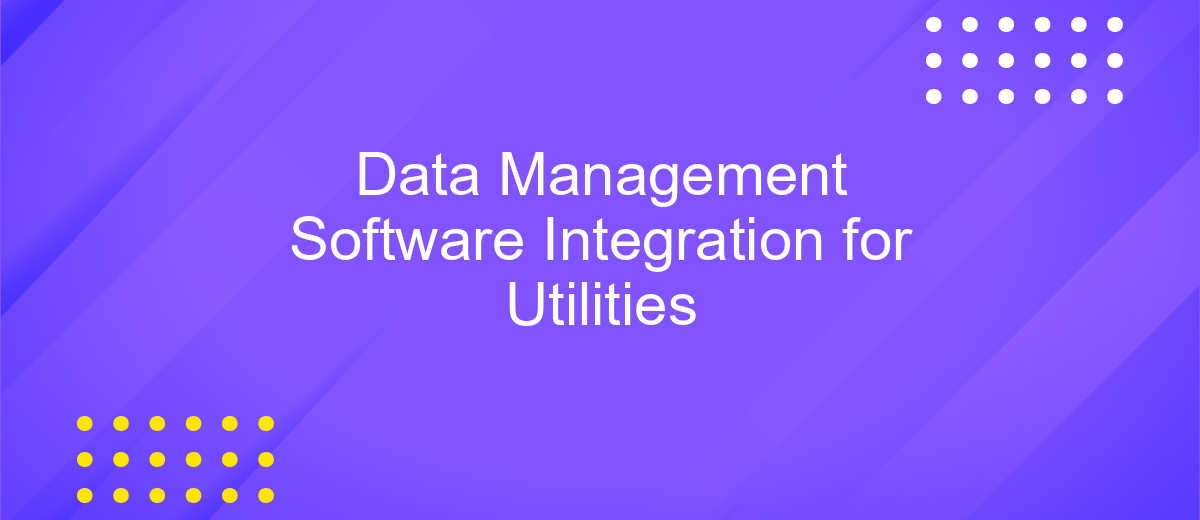Data Management Software Integration for Utilities
In the rapidly evolving utilities sector, efficient data management has become a cornerstone for operational success. Integrating robust data management software can streamline processes, enhance decision-making, and improve service delivery. This article explores the benefits and strategies of implementing data management software for utilities, highlighting how seamless integration can lead to significant advancements in efficiency and customer satisfaction.
Introduction
In today's rapidly evolving energy sector, utilities face the challenge of managing vast amounts of data from diverse sources. Effective data management software integration is crucial for optimizing operations, enhancing decision-making, and ensuring regulatory compliance. By seamlessly integrating various data management tools, utilities can gain comprehensive insights, streamline workflows, and improve overall efficiency.
- Enhanced data accuracy and consistency across systems
- Improved decision-making through real-time data access
- Increased operational efficiency and reduced costs
- Compliance with regulatory standards and requirements
- Better customer service through personalized data insights
As utilities continue to adopt advanced technologies, the integration of data management software becomes increasingly important. This process involves not only the technical aspects of connecting different systems but also the strategic alignment of business objectives. Ultimately, successful integration can lead to significant competitive advantages, enabling utilities to better navigate the complexities of the modern energy landscape.
Benefits of Data Management Software Integration for Utilities

Integrating data management software for utilities offers numerous benefits, including enhanced operational efficiency and improved decision-making. By consolidating various data streams into a unified platform, utility companies can streamline their workflows, reduce redundancy, and minimize errors. This integration enables real-time data access and analytics, allowing for more accurate forecasting and resource allocation, ultimately leading to cost savings and better service delivery to customers.
Additionally, using services like ApiX-Drive can simplify the integration process by providing a seamless connection between different software systems. ApiX-Drive offers an intuitive interface and a wide range of pre-built connectors, making it easier to automate data transfers and synchronize information across platforms. This reduces the need for manual data entry and ensures that all systems are up-to-date, fostering a more cohesive and efficient data management strategy for utility companies.
Key Factors to Consider for Successful Integration

When integrating data management software for utilities, it is crucial to consider several key factors to ensure a seamless and effective implementation. Proper planning and attention to these elements can significantly enhance the performance and reliability of the integrated system.
- Compatibility: Ensure the new software is compatible with existing systems and infrastructure to avoid costly modifications.
- Scalability: Choose a solution that can scale with your utility’s growth and evolving data management needs.
- Data Security: Implement robust security measures to protect sensitive information from breaches and unauthorized access.
- User Training: Provide comprehensive training for staff to maximize the software’s potential and minimize resistance to change.
- Vendor Support: Select a vendor that offers strong customer support and regular updates to keep the software running smoothly.
By carefully considering these factors, utilities can achieve a successful integration of data management software, leading to improved operational efficiency and data accuracy. A thoughtful approach ensures that the new system meets current requirements while being adaptable to future challenges.
Best Practices for Integrating Data Management Software

Integrating data management software into utility operations requires careful planning and execution to ensure seamless functionality and maximum efficiency. Begin by conducting a thorough needs assessment to identify the specific requirements and challenges unique to your utility. This will help in selecting the most suitable software solution.
Next, establish a comprehensive integration plan that includes timelines, resource allocation, and key performance indicators. Collaboration between IT and operational teams is crucial for addressing technical issues and ensuring that the software aligns with existing systems and processes.
- Conduct a needs assessment
- Develop a detailed integration plan
- Foster collaboration between IT and operational teams
- Ensure compatibility with existing systems
- Provide training and support for staff
Finally, continuous monitoring and feedback are essential for the successful integration of data management software. Regularly review performance metrics and user feedback to identify areas for improvement and make necessary adjustments. This proactive approach will help in achieving long-term success and operational efficiency.


Conclusion
In conclusion, the integration of data management software for utilities is a critical step towards enhancing operational efficiency and decision-making. By leveraging advanced technologies, utilities can streamline data collection, storage, and analysis, leading to more accurate forecasts and improved resource management. The seamless integration of various data sources ensures that utilities can respond swiftly to changing conditions and regulatory requirements.
Services like ApiX-Drive play a pivotal role in facilitating these integrations by offering user-friendly tools that simplify the process. With ApiX-Drive, utilities can automate data transfers between disparate systems, reducing manual intervention and minimizing errors. This not only saves time but also enhances data accuracy and reliability. As the utility sector continues to evolve, embracing comprehensive data management solutions and effective integration services will be essential for maintaining competitiveness and achieving sustainable growth.
FAQ
What is data management software integration for utilities?
Why is software integration important for utility companies?
What are the common challenges in integrating data management software for utilities?
How can ApiX-Drive help with data management software integration for utilities?
What should utility companies consider when choosing a data management integration solution?
Apix-Drive will help optimize business processes, save you from a lot of routine tasks and unnecessary costs for automation, attracting additional specialists. Try setting up a free test connection with ApiX-Drive and see for yourself. Now you have to think about where to invest the freed time and money!

